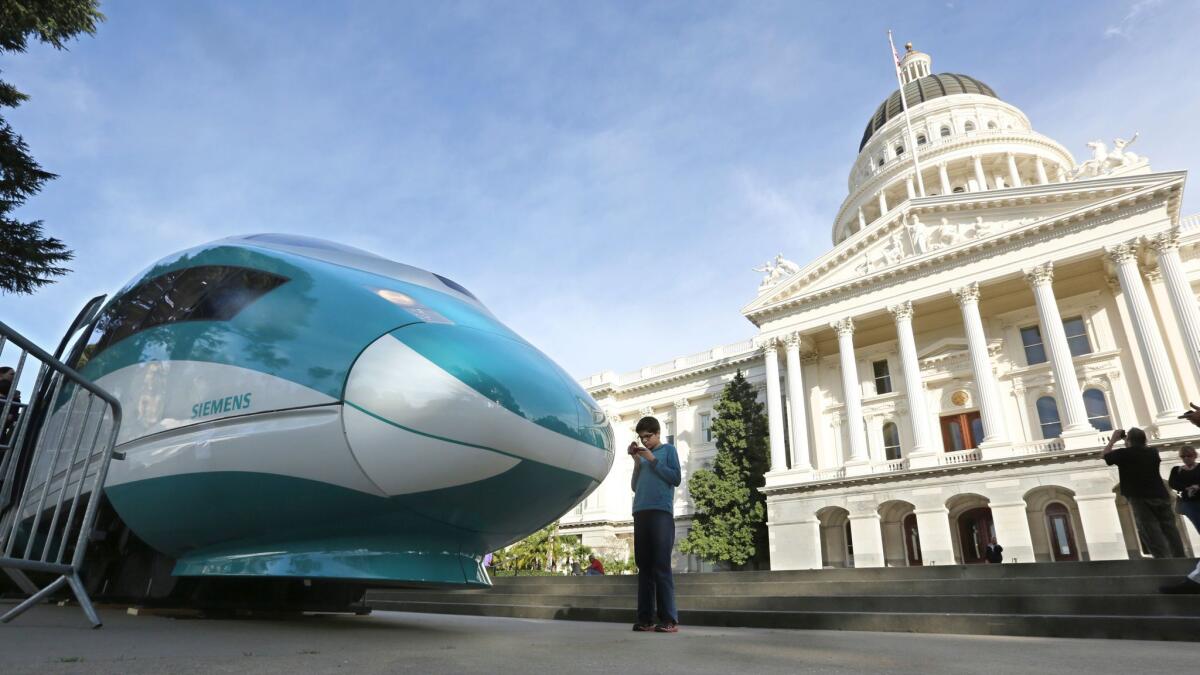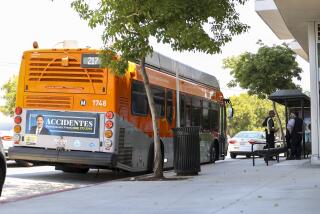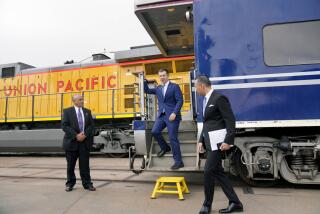Obama administration made last-minute modifications to California’s nearly $1-billion bullet train grant

In the final hours of the Obama administration, the Federal Railroad Administration on Thursday made key modifications to a $928-million grant to the California bullet train agency.
The grant extends the deadline for completion of construction in the Central Valley to 2022 from 2018. The project is building 118 miles of rail structures in the Central Valley as the first part of a high-speed rail line from Los Angeles to San Francisco, which the state estimates will cost $64 billion.
The extension is similar to one that the administration made for a $2.5-billion grant that was made with stimulus funds from the American Reinvestment and Recovery Act.
The action will also help the California High-Speed Rail Authority cope with delays in the project, though four years is less time than the federal agency projected the state may need to complete construction. A risk analysis briefed to the state authority on Dec. 1 estimated construction may not be completed until 2024.
The current modification creates some other tight conditions on the project. It would require the state to pay its matching share of the stimulus grant, estimated at about $2 billion, before drawing on the $928-million grant.
The state has to use all of the stimulus grant this year but is being allowed to spend the matching funds over future years.
The changes mean the state would have to start funding about $2 billion of construction out of state funds by the middle of this year before it can access the $928 million.
So far, the state has been relying on the federal grants to fund the work, mainly concentrated around Fresno.
California is trying to sell bonds approved by voters in 2008, but the move has been tied up in litigation for several years.
The state also can draw on carbon tax fees, which are projected to generate about $500 million annually. The revenue this year, however, came in well below projections.
It is unclear what approach President Trump and his pick for Transportation secretary, Elaine Chao, will take. House Republicans have long said they would not grant any additional federal money and explored the possibility of clawing back the existing grants. Chao would have broader authority to determine whether the state is complying with the terms of the grant.
If the federal office determines the project is not making adequate progress, it can terminate the grant, according to the agreement. State rail authority officials did not respond immediately to a request for comment.
The grant modification was disclosed by federal officials to the House rail subcommittee, and the grant document was posted on the state rail authority’s website.
More to Read
Sign up for Essential California
The most important California stories and recommendations in your inbox every morning.
You may occasionally receive promotional content from the Los Angeles Times.











